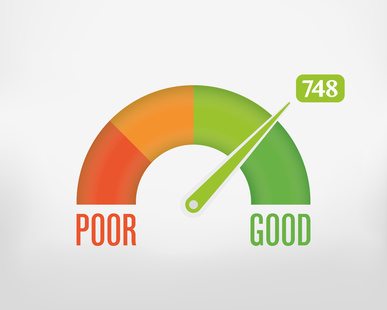Building great credit scores takes a lot of hard work and consistency. Even if you’ve worked hard to maintain impeccable credit for decades it’s still possible for you to undo the majority of that hard work in a surprisingly short period of time. Check out the following five credit traps you need to avoid unless you want to see your credit scores take a nosedive:
1. Applying for Too Much Credit In a Short Period of Time
Credit scores care about the frequency with which you apply for new credit. Why? Because people who apply for too much credit too often are riskier borrowers. When a lender pulls a copy of your credit reports as part of a loan application, a record of the credit pull known as an inquiry is placed on your credit report. Inquiries can damage your credit scores, so think carefully before you decide to apply for new accounts.
2. Running Up Your Credit Card Balances
Simply paying your credit card bills on time every month is not enough to maintain great credit scores. Credit scoring models also pay a lot of attention to the balances of your credit card accounts as they appear on your credit reports. The higher your balances, the worse the impact will be on your credit scores. If you start racking up high balances on your credit card accounts, you are placing your credit scores at risk, even if you make the monthly payments on time.
3. Making Late Payments
It should’t be a surprise that the most important credit score factors are related to your payment history. If you pay your bills on time consistently and have clean credit reports, then you are likely to have very good, if not great, credit scores. However, even if you have 2 decades’ worth of flawless payment history, that can all go out the window if you start making late payments now. In fact, if you have blemish-free credit reports and become past due on a single account, you can expect your credit scores to drop quickly, and by a lot.
4. Closing Unused Credit Cards
[inline-ad]Another common credit mistake is closing old, unused credit card accounts. Closing unused credit cards can have a negative impact on your credit scores, and it’s not because you lose credit for the age of the account (that is a myth). Closing credit cards damages your overall revolving utilization ratio, which is the relationship between the balances on your credit cards and their limits. You want to keep this ratio as low as possible, so the more available credit you have, the better. The higher your revolving utilization ratio climbs, the lower your credit scores can fall.
5. Agreeing to Co-Sign
Perhaps the most dangerous mistake you can make when it comes to your credit is agreeing to co-sign on someone else’s account. When you co-sign you become legally responsible for the debt, and you are also likely to see that new account pop up on your credit reports.
If the person you co-sign with makes a series of late payments on that new auto loan, they will show up on your credit reports and could lower your credit scores. If your co-obligor breaks the lease early on the apartment for which you co-signed then a collection account will probably be appearing on your credit reports in the not-so-distant future. You get the idea. Co-signing is hands down one of the worst credit mistakes you can ever make.





Really appreciate the information you give. Thanks so much for what you do.